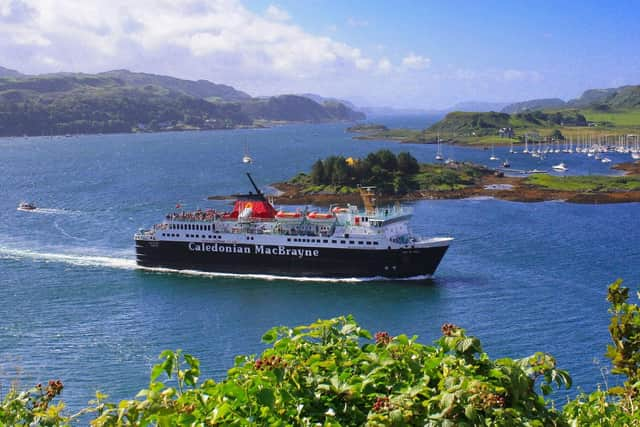2022 ushers in more travel uncertainty as staff absence surges
While the severity of the Omicron variant remains unclear, its impact on transport from surging staff absence numbers is fast taking effect.
But like the latest strain of the virus, it’s not known how long this will last or how serious it will get.
Advertisement
Hide AdAdvertisement
Hide AdScotRail, one of Scotland’s biggest transport operators, is among those worst affected, with the number of workers forced to take Covid-related leave increasing by nearly one third in a single day, from 324 to 429 on Thursday.


These have triggered up to 180 cancellations a day this week, while 160 trains a day are to be removed from the timetable from Tuesday in an attempt to provide a more reliable service that minimises last-minute call-offs.
That was followed by CalMac, Britain’s biggest ferry operator, announcing on Friday that sailings on ten of its 26 west coast routes would be reduced from Monday for at least three weeks after crew absence had increased by two and half times from 35 to 93 since Christmas Eve.
Industry sources said bus operators, some of whom have been less open about the extent of such absences in past, were also struggling.
Less apparent has been the impact on the firms which maintain Scotland's motorways and trunk roads, which have also reported dozens of absences.
Just as well it’s not snowing – yet.
The situation we’re now facing is what had been anticipated at the start of the pandemic, but didn’t happen – travel being hampered by service cuts because of staff forced to self-isolate.
It could prove to be a New Year nightmare all round: for inconvenienced passengers, struggling operators, and ministers faced with having to provide even more public money, if revenue again falls, on top of the hundreds of millions of pounds already pumped in to keep public transport going.
To add to that, ScotRail passengers face a 3.8 per cent fares increase in three weeks’ time which will be the highest for years – and will come two months ahead of rises on cross-Border and other British train operators.
Things can only get better?
A message from the Editor:
Thank you for reading this article. We're more reliant on your support than ever as the shift in consumer habits brought about by coronavirus impacts our advertisers.
If you haven't already, please consider supporting our trusted, fact-checked journalism by taking out a digital subscription.
Comments
Want to join the conversation? Please or to comment on this article.
